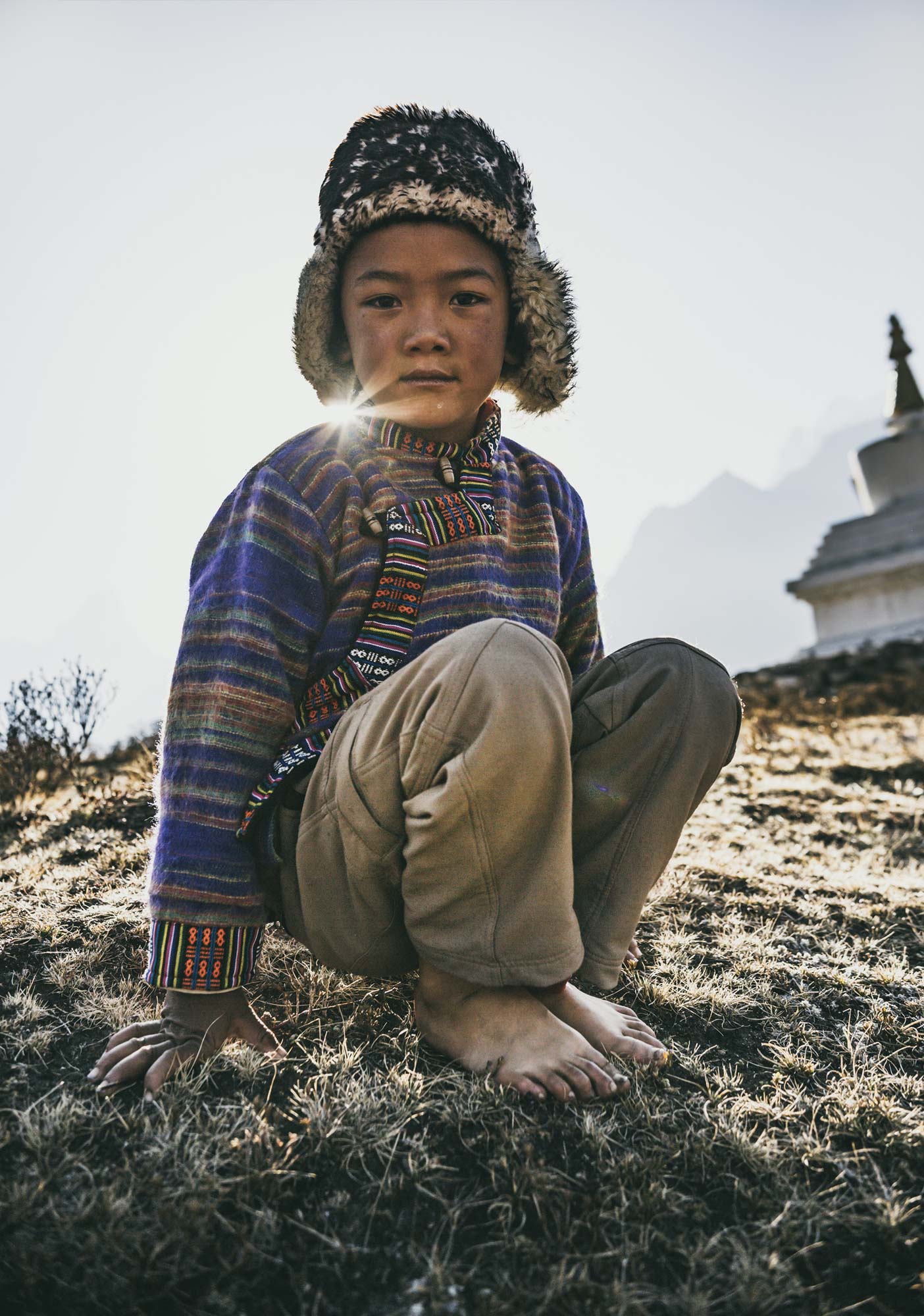By Marta Manzoni

Apa Sherpa interview

He climbed Everest 21 times. He is one of the greatest living alpinists. But he didn’t choose to become one. “When I was a child my goal was to become a doctor. I wanted to get an education and study to save people’s lives”. Apa Sherpa was born in Thame, at the foot of the highest peak on Earth. When he was 12 his father died. He dropped out of school and started working first as a porter for mountaineering groups and then as a hiking guide. “I had to take up responsibilities for my family but I didn’t earn enough to support ourselves. So I became a high-altitude porter: it was a very risky job but more profitable, it was not a choice, we needed money” says Apa. Before Everest he climbed many mountains, slowly getting higher and higher. He began transporting loads to the highest peak in the world in 1988. On 10 May 1990 he reached the summit for the first time: “I remember what I felt very well: I was completely excited, I felt like I was in heaven!” Loved by All, the documentary awarded at the Banff Film Festival, at the Trento Film Festival and at the Telluride Film Festival, tells his story. Absolutely recommended.


How is the typical day of a high altitude porter?
“The most dangerous part is climbing the ice falls: you have to wake up early in the morning, many hours before dawn, at two or three am, and cross them before the sun rises, because otherwise it would become too risky. You don’t know if you will return home alive or not: this is why we always pray twice a day, early in the morning and in the evening, and we always spare a thought for our families, you pray and climb, pray and climb. We try to organize our bags in order for our loved ones to bring them back easily in case we die. If you can make it alive and go home at the end of the expedition, which lasts several months, you still have many things to do at home but also the love of your family waiting for you. You try to enjoy the love of the people who care about you and savor every moment with them because you know that every minute is precious. When we are all together we relax, eat and drink and above all we talk, we talk a lot!”
What is the role of porters during expeditions?
“It’s very hard job. We must secure the ropes at the highest altitudes, carry all the necessary gears for the expedition, tents, oxygen, water, food, set all camps and go back and forth from one to the other, continuously, carrying a heavy load, often without using oxygen. We also need to check the weather to see when is the best time to climb. When the weather is not favorable you have to wait, sometimes for a long time: the expedition can take from a month and a half to over two months. You have to focus on the mission, take decisions and responsibility, manage logistics and teamwork, sacrifice yourself. As soon as the circumstances are suitable we have the task of bringing the customers to the top and then back to the base camp. At this point, for the mountaineers, the expedition is over: they can relax and return home. It is up to us porters to clean, fix and bring the gears back: this is a delicate moment, where many accidents happen, because you feel the fatigue of the many meters of altitude difference you’ve traveled up and down”.

How was the Apa Sherpa Foundation born?
“It was born from the desire to offer to new generations an alternative to this dangerous life. This work does not allow free days and therefore it is automatic for children to leave school. I want the villagers of my community to be able to become doctors, engineers, lawyers, to choose the life they want and climb only if they want, to live an adventure, as mountaineers do. When I quitted this job I was able to allow my children to study in the United States: they are very lucky and they make me proud. Together with my family we are also committed to protecting the environment, every year we go back together several times to visit schools and clean mountains, it is important to convey the importance of respecting nature. At the same time I wanted to work and educate young people from my community and other Nepalese villages, I still wanted to “save people’s lives” as I desired when I was child and as I had done during my career as a porter, managing to bring everyone home safely after the expeditions. So we started organizing initiatives to promote education until, four years ago, we met Thule: it was thanks to its fundamental support that we were able to create an effective Foundation, active in many schools. We contribute to the development of education under different fronts, for example we have provided every student with a computer: in my home village children had never seen one, so I consider it a result to be proud of! We also pay teachers and offer lunch to students, who often travel long distances to go to class. This is also an important success because they were used to skip lunch before”.
What makes you happy?
“Thinking that next generations of Nepalese communities will be able to choose not to die in the mountains. I didn’t go to school, I didn’t become a doctor, but my goal remained the same: “saving lives” of young people through education”.